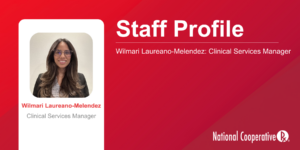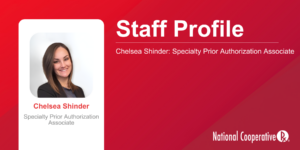National CooperativeRx constantly monitors the pharmaceutical pipeline. As treatment options change, it’s important to know how those changes could impact your plan and which drugs bring the highest value. Our quarterly NCRx Pipeline Reports highlight some of the newest therapies coming to market and are not intended to imply formulary placement or coverage by CVS Caremark.
Aduhelm® (adacanumab): The long, bumpy road to the U.S. Food and Drug Administration (FDA) has resulted in an approval for Aduhelm®, the first new drug in almost 20 years for Alzheimer’s Disease (AD). Unfortunately, the road ahead doesn’t look much smoother for the manufacturer Biogen. Aduhelm® was approved based on the results of two key clinical studies in patients in the early stages of cognitive impairment or dementia related to AD: EMERGE and ENGAGE.1,2 The results of the two studies were discordant, and even though the EMERGE trial showed a statistically significant benefit in one of its treatment groups, the improvement in cognitive impairment would not be considered clinically significant according to the Clinical Dementia Rating Scale. There was a 0.39- point improvement for the high dose group versus placebo on a scale of 0-18. An improvement of 1-2 points would be considered clinically meaningful. In addition to the questions surrounding efficacy, there are major safety concerns with the drug. A dose-dependent incidence of amyloid-related imaging abnormalities (ARIA) was associated with Aduhelm® treatment in trials, with a third of patients in the 10mg/kg high dose group experiencing the adverse effect. ARIA refers to edema and/or hemorrhage in the brain which can be seen on imaging tests. Other common side effects were falls, diarrhea and headache. In November 2020, an FDA advisory committee voted almost unanimously to recommend against approval, citing concerns with both safety and efficacy. The FDA’s decision to approve Aduhelm® defies this recommendation and even goes a step further from the committee’s direction by opting not to limit approval to patients in the early stages of the disease. Patients in later stages of the disease were not included in clinical trials for Aduhelm.®
While the approval is good news for Biogen, it doesn’t come without strings attached. The company will be required to complete post-approval clinical trials to verify the benefit of the drug and face rescindment of the approval if the data do not support its efficacy. Additionally, news of the approval has sparked fire from the Institute for Clinical and Economic Review (ICER), who is adamant that additional studies were needed to confirm safety and efficacy before approval. A statement issued June 7, 2021, stated, “FDA failed in its responsibility to protect patients and families from unproven treatments with known harms.”3 ICER also boldly addressed the list price of $56,000, stating, “Our report notes that only a hypothetical drug that halts dementia entirely would merit this pricing level.”3
Since the initial FDA approval for the product in early June, there has been significant outcry from physicians, patients, Alzheimer’s advocacy organizations and the public over the cost of the drug, the broad Alzheimer’s population it was approved for, and the many safety concerns around the product. In fact, several of the FDA’s advisory committee members have resigned in protest of the decision. The FDA has responded by narrowing the drug’s label to use in those with early Alzheimer’s only. It seems the FDA’s response was too little, too late. Now, advocacy groups, lawmakers and the FDA’s own Commissioner, Janet Woodcock, have lobbied for an federal investigation into the drug’s approval, alleging FDA staff and Biogen conducted meetings and communication “off-the-books” in an effort to push an (arguably inappropriate) approval.
Anticipated Launch: As soon as June 2021.
Impact: High for groups with a larger member population over 65 years old.* There are 6.2 million people over 65 years old in the U.S. with AD. This number is expected to double by the year 2050.2
Price: $56,000 per year. ICER’s analysis calculated a fair annual price of $2,500-$8,300.2
*CVS has advised this drug will not be covered on the prescription benefit, thus participants would be directed to their medical benefit to obtain coverage.
Teplizumab: This injectable monoclonal antibody is a first-in-class drug being developed to prevent or delay Type I diabetes (T1D) in high-risk patients. Researchers defined high-risk patients as nondiabetic relatives of patients with T1D with two or more diabetes-related autoantibodies and poor blood glucose stability. Since T1D is typically diagnosed in childhood, the target population for clinical trials was children under 18 years old. In a clinical trial published in 2019 with 76 participants (72% under 18 years), teplizumab delayed the onset of T1D in high-risk patients by a median of about two years.4 Investigators continued to follow these patients and reported new data in 2020 demonstrating teplizumab has continued to delay onset of T1D by three years compared to placebo.5 In these studies, the effect of teplizumab was even more pronounced in subgroups of patients with certain genetic variants and antibodies. The most significant side effect associated with teplizumab was a large but temporary drop in lymphocytes in 75% of the treatment group. The level rebounded in most patients by day 45, and the rate of infection was numerically higher in the teplizumab group but wasn’t statistically significant. There was also a frequent incidence of rash, which affected 36% of participants on teplizumab versus three percent of those given placebo. As with any drug designed for use in children, safety is of particular concern during the FDA review process. An FDA decision is set for July 2, 2021, and an FDA advisory panel has voted 10 to seven that the drug’s benefits outweigh its risks in support of approval. The manufacturer has studies underway for teplizumab in newly diagnosed type one diabetics, as well as PRV-101, another drug designed to prevent T1D in high risk individuals.
On July 2, the FDA issued a Complete Response Letter to the drug’s maker, Provention Bio, over concerns the company has failed to establish compatibility between the product used in clinical trials and the product designed for commercial use. They asked for additional data around the drug’s metabolic profile as well as additional safety data. Provention Bio has commented that it plans to publish the results of an ongoing phase III trial later this quarter and will work with the FDA to address the concerns. Thus, the approval of teplizumab likely now cannot be expected until 2022. Meanwhile, in the United Kingdom, Provention Bio was awarded an Innovation Passport for teplizumab, a designation which accelerates the development, approval, and access of especially innovative medicines in the United Kingdom.
Anticipated Launch: 2022.
Impact: Moderate. There are approximately 300,000 people in the U.S. with pre-T1D.
Price: Uncertain at this time. A cost-effectiveness analysis suggests a price of $48,900 per treatment course if the drug is approved for all pre-type I diabetic patients, while a price of $88,300 to $193,700 may be justified if the drug is approved only for a small subset of patients with specified genetic and/or antibody characteristics.6
Wegovy® (semaglutide): In June 2021, Wegovy® joined Saxenda® as the second drug in the glucagon-like peptide-1 (GLP-1) class approved to treat obesity. The drug’s active ingredient, semaglutide, has been on the market since 2017 for diabetes under the brand names Ozempic® and Rybelsus.® In clinical trials, Wegovy® demonstrated remarkable results in patients without diabetes who were obese or overweight with one or more weight-related conditions, with an average of 15% weight loss at week 68.7 In a separate clinical trial in overweight patients with type two diabetes, participants lost an average of 9.6% of their body weight.7 The drug also produced modest improvements in blood pressure and cholesterol. The magnitude of these results is best illustrated by considering the outcomes in the Saxenda® trials. In patients who were obese or overweight with one or more weight-related conditions, similar to the first study on Wegovy®, participants lost an average of 7.4% body weight with Saxenda.®8 In overweight patients with type two diabetes taking Saxenda®, there was an average of 5.4% weight loss.8 Other drugs available for treatment of obesity include Xenical®, Qsymia® and Contrave.® While it’s difficult to compare data across clinical trials with varying structures, Wegovy® currently appears to have the most robust efficacy data of any of these agents. While this efficacy data is certainly encouraging, Wegovy® comes with its share of risks. The most common adverse effects in clinical trials were nausea (44%), diarrhea (30%), vomiting (24%), and constipation (20%). The FDA label also includes cautionary statements regarding serious side effects such as thyroid cancer, pancreatitis, gallbladder disease, and kidney injury. It’s uncertain at this time whether Wegovy® will gain preferred status on CVS’ Advanced Control Formulary for clients who cover drugs for weight loss.
Anticipated Launch: Late June or early July 2021.
Impact: Moderate for clients who cover drugs for weight loss, based on mostly replacement spend and some new spend. 42% of adults in the U.S. are considered obese.
Price: Wholesale acquisition cost is $1,349 per 28-day supply.
Bimekizumab: Bimekizumab is the latest biologic drug in the pipeline for treatment of psoriasis with an expected FDA decision date in October 2021. It is an inhibitor of interleukin 17 (IL-17) and will be available as a subcutaneous injection administered every four weeks. Bimekizumab was studied against placebo and against several active comparators in clinical trials. In a study against Cosentyx® (secukinumab), another popular IL-17 inhibitor, 67.0% of patients treated with bimekizumab achieved complete skin clearance at week 48 while only 46.2% treated with Cosentyx® saw the same improvement (p<0.001).9 Oral yeast infections occurred more frequently in the bimekizumab group than the Cosentyx® group (19% vs 3%). In a trial against both Stelara (ustekinumab, IL-12 and 23 inhibitor) and placebo, 59% of the patients in the bimekizumab group had complete skin clearance at 16 weeks versus 22% of those in the Stelara® group and 0% in the placebo group (p<0.0001 for both comparators).10 Similar to the Cosentyx® trial, oral yeast infections occurred more frequently in the bimekizumab group than the Stelara® or placebo groups. While yeast infections do appear to be a consistent downside to bimekizumab in clinical trials, the overall efficacy data is impressive. Scientists will continue to watch for safety signals around cardiac events and inflammatory bowel disease, but so far, clinical trial data seems reassuring. And while bimekizumab is joining a rather crowded group of psoriasis treatments, its ability to produce complete skin clearance in a sizeable number of patients is likely to stimulate demand for the drug. It is also being studied for psoriatic arthritis, ankylosing spondylitis and hidradenitis suppurativa, which will add to future demand for the drug.
Anticipated Launch: Fall 2021.
Impact: Low (replacement spend). Psoriasis affects 8 million people in the U.S. 20% of patients have moderate to severe disease.
Price: Currently unknown but will likely fall in line with other biologics for psoriasis at around $6,000 per month.
Other Recent/Pending FDA Approvals:
Ruxolitinib: A first-to-market topical janus kinase 1/2 inhibitor (JAK1/JAK2) for eczema. The Prescription Drug User Fee Act date has been extended to September 21, 2021 to allow the FDA time to review additional data analyses submitted by the manufacturer.
Zeposia (ozanimod): An oral, sphingosine 1-phosphate (S1P) receptor modulator approved in May 2021 for moderate to severe ulcerative colitis (UC). It is the first-in-class to treat UC but has been on the market for over a year for relapsing-remitting multiple sclerosis. The cost is $89,900 per year.
Evkeeza (evinacumab): An anti-angiopoietin-like protein 3 approved in February 2021 as an add-on treatment of homozygous familial hypercholesterolemia. It’s administered via IV infusion once a month and costs $450,000 per year.
Arimoclomol: An oral heat shock protein amplifier to treat Niemann-Pick type C (NPC), a rare lipid processing disease. There are currently no FDA-approved treatments for NPC in the U.S. On June 18, 2021, the manufacturer was issued a complete response letter from the FDA, indicating additional studies must be completed before approval will be reconsidered.
- Food and Drug Administration. Combined FDA and Applicant PCNS Drugs Advisory Committee. Briefing Document. 2020.
- Lin GA, Whittington MD, Synnott PG, McKenna A, Campbell J, Pearson SD, Rind DM. Aducanumab for Alzheimer’s disease: Effectiveness and value; Draft Evidence Report. Institute for Clinical and Economic Review, May 5, 2021 https://icer.org/assessment/alzheimersdisease-2021/.
- ICER issues statement on the FDA’s approval of aducanumab for Alzheimer’s disease; 2021. Available at: https://icer.org/news-insights/press-releases/icer-issues-statement-on-the-fdas-approval-of-aducanumab-for-alzheimers-disease/. Accessed June 7, 2021.
- Herold KC, Bundy BN, Long SA, et al. An anti-CD3 antibody, teplizumab, in relatives at risk for type 1 diabetes. N Engl J Med 2019; 381(7): 603-13.
- Provention Bio’s Teplizumab Continued to Significantly Delay the Onset of Insulin-Dependent Type 1 Diabetes (T1D) in Presymptomatic Patients; 2020. Available at: http://investors.proventionbio.com/2020-06-15-Provention-Bios-Teplizumab-Continued-to-Significantly-Delay-the-Onset-of-Insulin-Dependent-Type-1-Diabetes-T1D-in-Presymptomatic-Patients. Accessed March 8, 2021.
- Mital S, Nguyen HV. Cost effectiveness of teplizumab for prevention of type 1 diabetes among different target patient groups. Pharmacoeconomics 2020 Dec;38(12):1359-1372.
- Wegovy® (semaglutide) injection 2.4 mg Prescribing Information. Plainsboro, NJ: Novo Nordisk Inc.; 2021.
- Saxenda® (liraglutide) injection 3mg Prescribing Information. Plainsboro, NJ: Novo Nordisk Inc.; 2020.
- Reich K, Warren RB, Lebwohl M, et al. Bimekizumab versus secukinumab in plaque psoriasis. [published online ahead of print April 23, 2021]. N Engl J Med. doi: 1056/NEJMoa2102383
- Reich K, Papp KA, Blauvelt A, et al. Bimekizumab versus ustekinumab for the treatment of moderate to severe plaque psoriasis (BE VIVID): efficacy and safety from a 52-week, multicentre, double-blind, active comparator and placebo-controlled phase 3 trial. Lancet 2021; 397(10273): P487-498.
- National Psoriasis Foundation. About Psoriasis. Available at https://www.psoriasis.org/about-psoriasis. Accessed June 22, 2021.
- 19 Wu, J. Contemporary Management of Moderate to Severe Plaque Psoriasis. AJMC. Available at https://ajmc.s3.amazonaws.com/_media/_pdf/AJMC_A798_PlaquePsoriasis.pdf. Accessed June 22, 2021.




